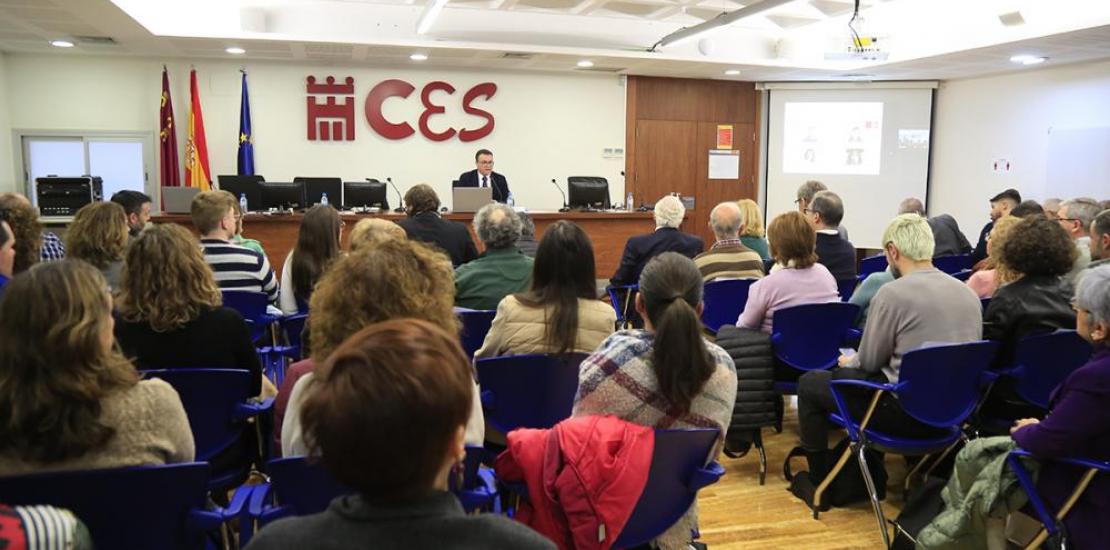Progress in elderly care still not enough to meet all needs
Today, Wednesday, the Economic and Social Council of the Region of Murcia hosted the presentation of the report 'The care model for the elderly in the Region of Murcia: a socio-sanitary proposal', coordinated by Carmelo Gómez, director of the UCAM Chair of Humanisation and Care for the Elderly, with the participation of Paloma Echevarría, dean of the Faculty of Nursing.
The current social reality surrounding the ageing of the population, as well as what awaits us in the next 5-10 years, requires a change in the care paradigm. 'The care model for the elderly in the Region of Murcia: a social and health care proposal', presented today at the headquarters of the Economic and Social Council of the Region highlights that. Even though it is true that the current model of care provision in institutions, specifically residential care homes and day centres, has been undergoing changes and progress, these are insufficient to adapt to the needs of a significant part of the population of Murcia and Spain.
The study includes a range of conclusions drawn from the numerous testimonies gathered from organisations and groups in elderly care field, both in the Region of Murcia and nationwide, as well as a series of recommendations aimed at both the managers of residential care homes and day centres and the regional public administration, both in the health as well as the social field.
One of the main points is that the residential care homes must make a major effort towards management based on the needs of the people and not so much on the service provided by the public administration.
To this end, ‘it is necessary to update the regional regulations regarding the conditions under which the centres operate, which is linked to a change of paradigm. Currently there is only one care model of residence for everyone; 20 years ago it was probably necessary, but today it is outdated,’ says Carmelo Gómez, coordinator of the report and director of the Chair of Humanisation and Care for the Elderly at UCAM, who also points out that ‘social reality tells us that there are different care needs and different models are necessary to provide this type of assistance’, distinguishing between elderly people with and without functional dependency, with geriatric-psychiatry conditions and with intellectual disabilities, depending on the degree.
This has led, according to the report, to the fact that, according to the designation of a certain degree of care, very different care profiles are included, clearly complicating the satisfaction of the elderly and their families, emphasising that it is advisable to design different care models depending on the profiles to be cared for, so that we are no longer talking about a model of residential care homes/day centres as a singular concept, but of particular care models as a plural one.
Increased support from the administration
According to the document, the managers of residential care homes and day centres have made real efforts to provide adequate care, although this is clearly conditioned by the price per spot currently paid by the public administration for the services provided. ‘Logically, if we combine the care model with new regulations, this is inevitably linked to new funding; if there is no funding, there can be no model, and therefore there can be no updating’, stresses Carmelo Gómez. The managers interviewed expressed their willingness to improve ratios and care programmes on numerous occasions, although this is not possible without a clear and imminent effort on the part of the public administration.
Quality of care in the region of Murcia
With regard to the quality of care in the Region of Murcia's residential care homes, Carmelo Gómez stressed that it is good, ‘ but the fact that it provides a good service does not mean that it is the best service, and that is what we have to aspire to. However, not because of a business or organisational project, but because the elderly people we care for deserve it; they are vulnerable people who need us to make an effort, especially to improve their care’.




